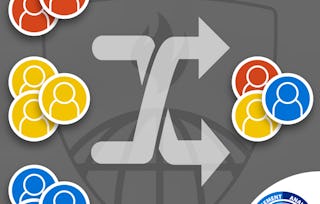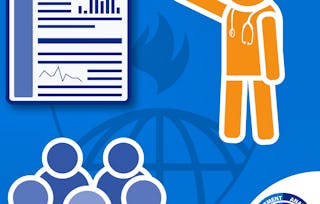Clinical trials are experiments designed to evaluate new interventions to prevent or treat disease in humans. The interventions evaluated can be drugs, devices (e.g., hearing aid), surgeries, behavioral interventions (e.g., smoking cessation program), community health programs (e.g. cancer screening programs) or health delivery systems (e.g., special care units for hospital admissions). We consider clinical trials experiments because the investigators rather than the patients or their doctors select the treatment the patients receive. Results from randomized clinical trials are usually considered the highest level of evidence for determining whether a treatment is effective because trials incorporates features to ensure that evaluation of the benefits and risks of treatments are objective and unbiased. The FDA requires that drugs or biologics (e.g., vaccines) are shown to be effective in clinical trials before they can be sold in the US.

Design and Interpretation of Clinical Trials

Design and Interpretation of Clinical Trials


Instructors: Janet Holbrook, PhD, MPH
157,272 already enrolled
Included with
4,345 reviews
Skills you'll gain
Details to know

Add to your LinkedIn profile
6 assignments
See how employees at top companies are mastering in-demand skills

There are 6 modules in this course
This week, we explore different types of trial designs, including parallel, crossover, group allocation, factorial, large simple, equivalency, non-inferiority, and adaptive designs.
What's included
5 videos3 readings1 assignment2 discussion prompts
This week we discuss two key design features of randomized clinical trials used to protect against bias, randomization and masking.
What's included
3 videos1 reading1 assignment3 discussion prompts
This week focuses on a key design issue - selecting the primary outcome. We will also cover the gold standard for analysis of clinical trials, which is including all the participants in the analysis regardless of their actual treatment.
What's included
4 videos1 reading1 assignment2 discussion prompts
This week focuses on a key issue in the field of clinical trials, the ethics of experimentation in humans.
What's included
2 videos6 readings1 assignment2 discussion prompts
This week, we focus on reporting results of clinical trials in publications. We cover the Consolidated Standards of Reporting Trials (CONSORT) guidelines.
What's included
3 videos3 readings1 assignment2 discussion prompts
This week, we focus on whether RCTs are still the gold standard for evaluating evidence.
What's included
3 videos2 readings1 assignment2 discussion prompts
Instructors


Offered by
Explore more from Research
 Status: Free Trial
Status: Free TrialJohns Hopkins University
 Status: Free Trial
Status: Free TrialJohns Hopkins University
 Status: Free Trial
Status: Free Trial Status: Free Trial
Status: Free TrialJohns Hopkins University
Why people choose Coursera for their career

Felipe M.

Jennifer J.

Larry W.

Chaitanya A.
Learner reviews
- 5 stars
76.31%
- 4 stars
20.59%
- 3 stars
2.55%
- 2 stars
0.34%
- 1 star
0.18%
Showing 3 of 4345
Reviewed on Jun 1, 2018
The instructors have broken down the concepts in a very effective manner and have designed very thoughtful discussion prompts. The course really helped me understand the basics of clinical trials.
Reviewed on Nov 25, 2020
a very good introduction to clinical trials, it would be great if there is a second part of this course covering more topics in trial design and also the statistics in clinical trials.
Reviewed on May 26, 2020
Simplified every aspect as much as possible .Take home message without technical jargon is the icing on the cake.Thank you so much. I would love to attend other courses from your university.

Open new doors with Coursera Plus
Unlimited access to 10,000+ world-class courses, hands-on projects, and job-ready certificate programs - all included in your subscription
Advance your career with an online degree
Earn a degree from world-class universities - 100% online
Join over 3,400 global companies that choose Coursera for Business
Upskill your employees to excel in the digital economy
Frequently asked questions
To access the course materials, assignments and to earn a Certificate, you will need to purchase the Certificate experience when you enroll in a course. You can try a Free Trial instead, or apply for Financial Aid. The course may offer 'Full Course, No Certificate' instead. This option lets you see all course materials, submit required assessments, and get a final grade. This also means that you will not be able to purchase a Certificate experience.
When you purchase a Certificate you get access to all course materials, including graded assignments. Upon completing the course, your electronic Certificate will be added to your Accomplishments page - from there, you can print your Certificate or add it to your LinkedIn profile.
Yes. In select learning programs, you can apply for financial aid or a scholarship if you can’t afford the enrollment fee. If fin aid or scholarship is available for your learning program selection, you’ll find a link to apply on the description page.
More questions
Financial aid available,

